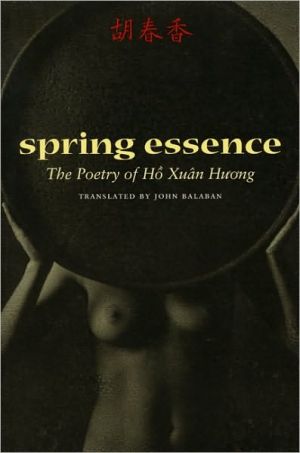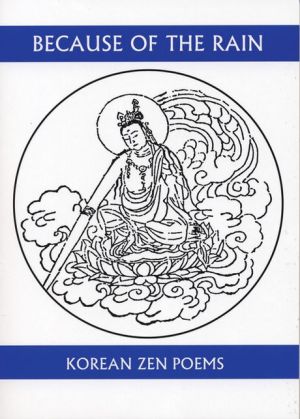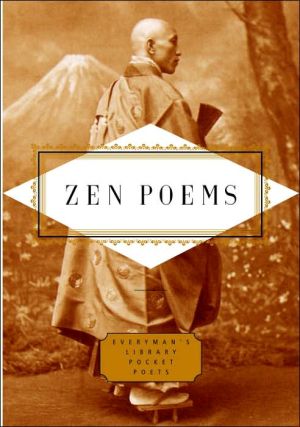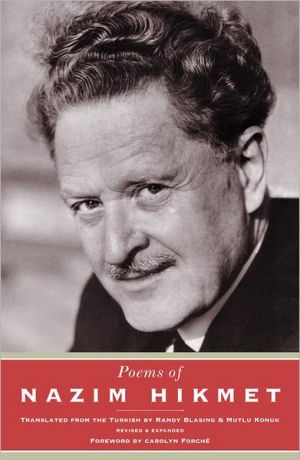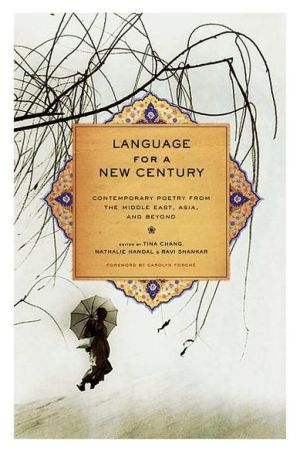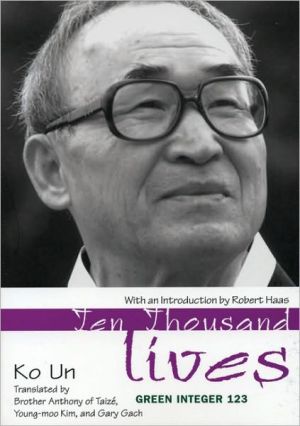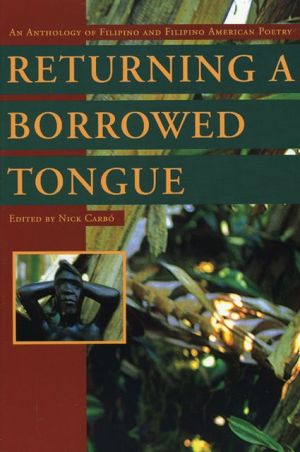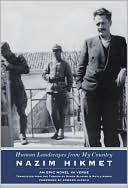Spring Essence: The Poetry of Ho Xuan Huong
Poetry. Ho Xuan Huong, whose name means Spring Essence, was an eighteenth-century concubine who wrote subtly risque poems that used double entendre and sexual innuendo as a vehicle for social, religious, and poltical commentary. Her attacks on male authority were shocking and risky, but she and her work survived because of her exquisite cleverness and skill at poetry. Translated from the older version of Vietnamese by John Balaban, with Nom script on facing pages. A splendid translation of...
Search in google:
Hô Xuân Huong-whose name translates as "Spring Essence"-is one of the most important and popular poets in Vietnam. A concubine, she became renowned for her poetic skills, writing subtly risqué poems which used double entendre and sexual innuendo as a vehicle for social, religious, and political commentary. "The Unwed Mother"Because I was too easy, this happened.Can you guess the hollow in my heart?Fate did not push out a budeven though the willow grew.He will carry this a hundred yearsbut I must bear the burden now.Never mind the gossip of the world.Don't have it, yet have it ! So simple.The publication of Spring Essence is a major historical and cultural event. It features a "tri-graphic" presentation of English translations alongside both the modern Vietnamese alphabet and the nearly extinct calligraphic Nôm writing system, the hand-drawn calligraphy in which Hô Xuân Huong originally wrote her poems. It represents the first time that this calligraphy-the carrier of Vietnamese culture for over a thousand years-will be printed using moveable type. From the technology demonstrated in this book scholars worldwide can begin to recover an important part of Vietnam's literary history. Meanwhile, readers of all interests will be fascinated by the poetry of Ho Xuan Huong, and the scholarship of John Balaban.The translator, John Balaban, was twice a National Book Award finalist for his own poetry and is one of the preeminent American authorities on Vietnamese literature. During the war Balaban served as a conscientious objector, working to bring war-injured childrenbetter medical care. He later returned to Vietnam to record folk poetry. Like Alan Lomax's pioneering work in American music, Balaban was to first to record Vietnam's oral tradition. This important work led him to the poetry of Hô Xuân Huong.Ngo Than Nhan, a computational linguist from NYU's Courant Institute of Mathematics, has digitized the ancient Nôm calligraphy.Also available by John BalabanLocusts at the Edge of SummerPB $15.00, 1-55659-123-3 CUSAWords for My DaughterPB $10.00, 1-55659-037-7 CUSAPublishers WeeklyIt's the backstory more than the actual English renderings of these poems that has been generating pre-pub attention for this title, including a feature in APR--but it's a pretty good backstory. A poet and conscientious objector during Vietnam, Balaban (Locusts at the Edge of Summer: New and Selected Poems) nevertheless went in country during the war, advocating for better care for wounded children. He eventually became smitten with the poems in this book and perhaps with the mysterious poet behind them. Ho, who was born in the late 18th century and died in the early 19th, may or may not have been a concubine to a local official, but the speaker in the poems that have come to us in her name often wrote as one--employing strictly forbidden sexual themes via wry double entendres. The difficulty in translation, as Balaban's straightforward introduction notes, is compounded by the fact that Ho wrote in N m, a now nearly extinct writing system that maps characters onto the vernacular rather than the Mandarin of more formal writing. Her "sonnetlike lu-shih style" was a particular challenge, but the form and meanings come through clearly in poems like "Three-Mountain Pass": "A cliff face. Another. And still a third./ Who was so skilled to carve this craggy scene:// the cavern's red door, the ridge's narrow cleft,/ the black knoll bearded with little mosses?" Such contrivances can make for entertaining reading, but unless one can read the included transliterations and N m script (this book is one of the first successes of the N m Preservation Foundation), the translations, as tightly wound as they are, won't bear repeated perusals. (Still less so the book's cover, with its lame, bare-breasted attempt at titillation.) For all but the most jaded, however, the book's provenance and racy themes will hold interest enough. (Oct.) Copyright 2000 Cahners Business Information.
\ \ \ \ \ Chapter One\ \ \ Canh thu\ \ \ Thánh thót tâu tiêu mây hat mua,\ Khen ai khéo ve canh tiêu so.\ Xanh om cô thu tròn xoe tán,\ Trang xoá tràng giang phang lang tò.\ Bâu dôc giang son say chap ru'o'u,\ Túi lung phong nguyêt nang vì tho'.\ O hay, canh cung ua nguò'i nhi,\ Ai thây, ai mà chang ngân ngo'.\ \ \ Autumn Landscape\ \ \ Drop by drop rain slaps the banana leaves.\ Praise whoever sketched this desolate scene:\ \ the lush, dark canopies of the gnarled trees,\ the long river, sliding smooth and white.\ I lift my wine flask, drunk with rivers and hills.\ My backpack, breathing moonlight, sags with poems.\ \ Look, and love everyone.\ Whoever sees this landscape is stunned.\ \ \ Tu' tình tho'\ \ \ Tiêng gà xao xác gáy trên bom\ Oán hân trông ra khap moi chòm\ Mõ tham không khua ma cung côc\ Chuông sâu chang dánh có sao om\ Truóc nghe nhung tiêng thêm râu ri\ Sau giân vì duyên dê mõm mòm\ Tài tu van nhân ai dó tá\ Thân này dã han chiu già hom.\ \ \ Confession(I)\ \ \ Gray sky. A rooster crows.\ Bitter, I look out on thickets and folds.\ I haven't shaken grief's rattle, yet it clatters.\ I haven't rung sorrow's bell, though it tolls.\ Their noise only drags me down, angry\ with a fate that says I'm much too bold.\ Men of talent, learned men, where are you?\ Am I supposed to walk as if stooped and old ?\ \ \ Mò'i an trâu\ \ \ Qua cau nho nho miêng trâu hôi\ Này cua Xuân Hu'o'ng mó'i quêt rôi\ Có phai duyên nhau thòi tham lai\ Dù'ng xanh nhu' lá bac nhu' vôi.\ \ \ Offering Betel\ \ \ A piece of nut and a bit of leaf.\ Here, Xuân Hu'o'ng has smeared it.\ If love is fated, you'll chew it red.\ Lime won't stay white, nor leaf, green.\
Acknowledgmentsixca dao1Introduction2Autumn Landscape18Confession (I)20Offering Betel22Confession (II)24Lament for the Prefect of Vinh-Tuong26Lament for Commissioner Coc28Confession (III)30The Floating Cake32On Sharing a Husband34Jackfruit36River Snail38Tavern by a Mountain Stream40Teasing Chieu-Ho42Chieu-Ho's Reply44Three-Mountain Pass46Weaving at Night48On a Portrait of Two Beauties50The Unwed Mother52Swinging54Male Member56Girl without a Sex58The Paper Fan60Picking Flowers62The Wellspring64Cats66Consoling a Young Widow68The Pharmacist's Widow Mourns His Death70The Condition of Women72Village Schoolmaster74The Retired Doctor76Young Scholars78Quan Su Pagoda80Buddhist Nun82The Lustful Monk84Old Pagoda86Viewing Cac-Co Cavern88Mocking a Monk90Tran Quoc Temple92At the Chinese General's Tomb94Rusty Coins96The Scarecrow98The Crab100Unwelcome Houseguest102The Kingdom of Dang104The Chess Game106Heaven Market108Questions for the Moon110Country Scene112Spring-Watching Pavilion114Endnotes116Sources for Nom poems130References132Sources for quoc-ngu versions133About the translator134ca dao135
\ From Barnes & NobleThe Barnes & Noble Review\ Poet, scholar, and translator John Balaban was a conscientious objector who served in Vietnam, working to bring war-injured children the medical attention they needed. After his tour of duty ended, while the war was still raging, Balaban traveled the countryside with a tape recorder asking the Vietnamese country people to sing him their favorite poems. When his translations began to appear in print, a scholar in Hanoi advised him that "to truly know the heart and soul of Vietnam, you must translate Ho Xuan Huong." Ho Xuan Huong -- whose name tranlsates as "Spring Essence" -- was an 18th-century concubine who wrote suggestive poems as a vehicle for social, religious, and political commentary. \ With these penetrating, lyrical translations Balaban succeeds not only in bringing to our attention a great poet but also in salvaging the virtually extinct ideographic script once used by the Vietnamese, Nôm. Spring Essence therefore represents the work of two masters: Ho Xuan Huon and John Balaban -- together they bridge three centuries, uniting past with present, ensuring a future for the language and poetry of a remarkable people.\ Cam on nhieu, Mr. Balaban. Thank you. (Cary Goldstein)\ \ \ \ \ \ Publishers Weekly - Publisher's Weekly\ It's the backstory more than the actual English renderings of these poems that has been generating pre-pub attention for this title, including a feature in APR--but it's a pretty good backstory. A poet and conscientious objector during Vietnam, Balaban (Locusts at the Edge of Summer: New and Selected Poems) nevertheless went in country during the war, advocating for better care for wounded children. He eventually became smitten with the poems in this book and perhaps with the mysterious poet behind them. Ho, who was born in the late 18th century and died in the early 19th, may or may not have been a concubine to a local official, but the speaker in the poems that have come to us in her name often wrote as one--employing strictly forbidden sexual themes via wry double entendres. The difficulty in translation, as Balaban's straightforward introduction notes, is compounded by the fact that Ho wrote in N m, a now nearly extinct writing system that maps characters onto the vernacular rather than the Mandarin of more formal writing. Her "sonnetlike lu-shih style" was a particular challenge, but the form and meanings come through clearly in poems like "Three-Mountain Pass": "A cliff face. Another. And still a third./ Who was so skilled to carve this craggy scene:// the cavern's red door, the ridge's narrow cleft,/ the black knoll bearded with little mosses?" Such contrivances can make for entertaining reading, but unless one can read the included transliterations and N m script (this book is one of the first successes of the N m Preservation Foundation), the translations, as tightly wound as they are, won't bear repeated perusals. (Still less so the book's cover, with its lame, bare-breasted attempt at titillation.) For all but the most jaded, however, the book's provenance and racy themes will hold interest enough. (Oct.) Copyright 2000 Cahners Business Information.\ \ \ Philip GamboneOne of Vietnam's greatest poets, Ho Xuan Huong -- whose dates, as far as we know them, roughly correspond to those of Jane Austen -- lived through a time of national upheaval and personal frustration. Ho's stature rests on her mastery of classical technique, her mordant humor and on what John Balaban, in his excellent introduction to Spring Essence: The Poetry of Ho Xuan Huoung, the first substantial anthology of Ho's poetry in a Western language, calls ''her exquisite cleverness.'' Ho delighted in puns and double entendres, tonal play, anagram-like subtexts and elaborate rhyme schemes that were even more intricate than the established formal patterns warranted. Many of her poems conceal an alternate meaning, usually sexual, sometimes obscene. In the simple landscape of daily objects -- jackfruit, river snails, a loom, a chess set, and perhaps most famously a paper fan -- Ho found metaphors for sex, which she turned into trenchant indictments of the plight of women and the arrogance, hypocrisy and corruption of men. Balaban's deft translations are a beautiful and significant contribution to the West's growing awareness of Vietnam's splendid literary heritage. \ —New York Times Book Review\ \
